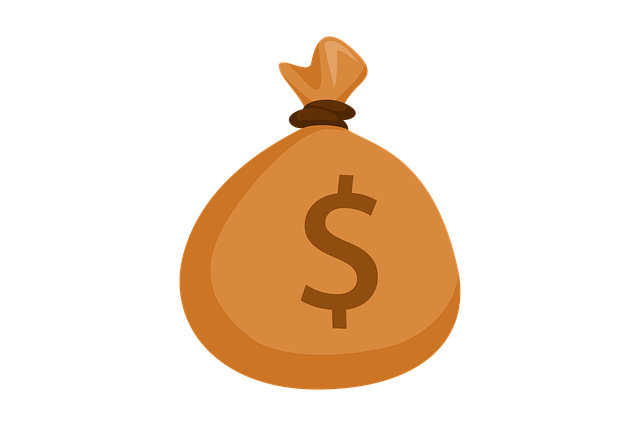Unsecured consolidation loans provide a swift and accessible solution for homeowners with bad credit to manage multiple high-interest debts. By combining debts into one loan, these loans simplify repayment, reduce interest expenses, and enhance financial health. To qualify, borrowers should assess their debt, compare interest rates, maintain stable income, and focus on responsible financial management. Efficient repayments, structured plans, and disciplined spending accelerate the process, positively impacting credit scores over time.
Struggling with high-interest debts? As a homeowner with a low credit score, bad credit debt consolidation loans could be your path to financial freedom. This article delves into unsecured consolidation loans—a powerful tool for managing multiple debts. Learn how these loans, despite not requiring collateral, offer lower interest rates and improved repayment terms. We’ll guide you through qualifying, from understanding your credit score to choosing the right lender. Discover effective strategies to repay consolidated debts and take control of your financial future.
- Understanding Bad Credit Debt Consolidation Loans
- Advantages of Unsecured Consolidation Loans for Homeowners
- How to Qualify for and Obtain These Loans
- Effective Strategies for Repaying Consolidated Debts
Understanding Bad Credit Debt Consolidation Loans
Bad credit debt consolidation loans are designed to help homeowners with low credit scores manage their debts more effectively. These loans allow individuals to combine multiple high-interest debts into a single loan with a lower interest rate, simplifying repayment and potentially saving money. Unsecured consolidation loans, in particular, offer a good option for those with bad credit since they do not require collateral, making them less risky for lenders.
This type of loan can be a game-changer for homeowners struggling with debt, providing a clear path to financial stability. By consolidating debts, borrowers can reduce their monthly payments and free up cash flow, enabling them to focus on rebuilding their credit score over time. It’s worth noting that unsecured consolidation loans may come with higher interest rates compared to secured options, so it’s crucial for borrowers to carefully evaluate their financial situation and choose a loan that aligns with their needs.
Advantages of Unsecured Consolidation Loans for Homeowners
Unsecured consolidation loans offer a compelling option for homeowners looking to manage their debt with bad credit. One significant advantage is the simplicity and speed of approval, as these loans don’t require collateral, eliminating the need for home equity. This makes them accessible to a broader range of borrowers, even those with low credit scores.
Additionally, unsecured consolidation loans can streamline debt management by combining multiple high-interest debts into a single, more manageable loan. By doing so, homeowners can simplify their monthly payments and potentially reduce overall interest expenses. This strategic approach can help improve financial health and provide much-needed relief from the burden of excessive debt payments.
How to Qualify for and Obtain These Loans
To qualify for unsecured consolidation loans, homeowners with bad credit scores need to first assess their financial situation. This involves understanding the extent of their debt and evaluating their ability to make consistent repayments. It’s crucial to compare interest rates offered by various lenders, as this can significantly impact the overall cost of the loan. Maintaining a stable income and demonstrating responsible financial management practices can improve their chances of approval.
When applying for these loans, it’s essential to provide accurate financial information and meet certain criteria set by lenders. Good credit history is not always a requirement; some lenders cater specifically to borrowers with low credit scores. Ensuring timely loan repayments and keeping debt levels manageable will help in building a stronger financial profile over time, potentially making future borrowing options more accessible and favorable.
Effective Strategies for Repaying Consolidated Debts
Repaying consolidated debts effectively is crucial for homeowners looking to improve their credit scores and financial stability. One strategy involves creating a structured repayment plan, prioritizing high-interest debts first. This approach ensures that the most costly debts are addressed swiftly, saving on interest charges over time. Regularly reviewing and adjusting the repayment schedule can also help; as financial situations change, modifying the plan to fit new budgets is essential.
Additionally, maintaining discipline with regard to unnecessary spending is vital. Homeowners should aim to live within their means, avoiding impulsive purchases that could disrupt repayment progress. Using unsecured consolidation loans wisely, by focusing on debt reduction and not incuring fresh debt, can be a game-changer. This strategic approach, combined with consistent savings, will accelerate the debt-busting process and positively impact credit scores over the long term.
For homeowners with low credit scores, unsecured consolidation loans offer a viable path towards managing and repaying debts effectively. By consolidating multiple high-interest debts into a single loan with potentially lower rates, these loans can simplify financial management and save money in the long run. However, it’s crucial to understand the repayment terms and strategies involved to ensure successful debt elimination. With careful planning and discipline, unsecured consolidation loans can be a game-changer for those seeking to reclaim control of their finances.
